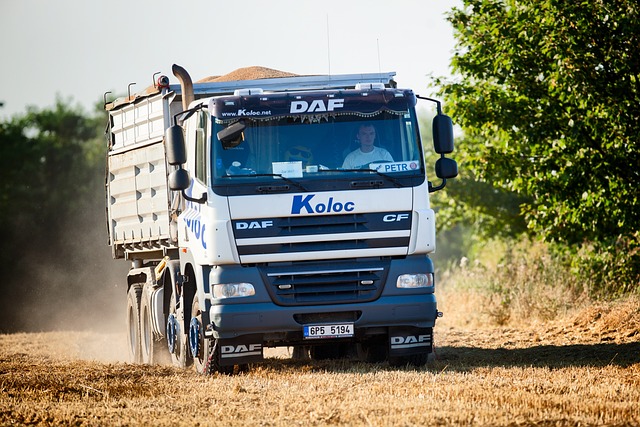Collision coverage for fleets is a critical component in safeguarding business investments, offering comprehensive protection against financial losses from vehicle accidents, natural disasters, and theft. Essential for high-value assets and multiple vehicles, this specialized insurance maintains fleet operational efficiency by addressing unique commercial vehicle needs. Real-time telematics data integration and staying informed about industry trends further enhance risk mitigation. Case studies show that adopting collision coverage for fleets can significantly reduce downtime, financial losses, and improve overall fleet efficiency and profitability.
Empowering fleet owners with knowledge is key to safeguarding their valuable assets. This article guides you through the essential aspects of collision coverage for fleets, a vital tool in protecting against significant financial losses. We explore comprehensive insurance policies, strategies for risk management, and real-world case studies demonstrating the benefits. By understanding collision coverage, fleet owners can confidently navigate the road ahead, ensuring peace of mind and business continuity.
Understanding Collision Coverage for Fleets: Unveiling Essential Protections

Collision coverage for fleets is an indispensable component in safeguarding fleet owners’ investments. It offers protection against financial losses arising from vehicle accidents, providing peace of mind and ensuring business continuity. This type of coverage goes beyond standard car insurance, catering specifically to the unique needs of commercial vehicles. By understanding its intricacies, fleet owners can make informed decisions when selecting appropriate policies.
Essential protections under collision coverage include compensation for damaged or totaled vehicles, as well as liability for accidents caused by drivers. It also frequently includes medical payments for injuries sustained in crashes, offering comprehensive support during challenging times. This coverage is particularly valuable for businesses with high-value assets and operations involving multiple vehicles, as it helps maintain fleet operational efficiency and minimizes financial strain.
The Impact of Comprehensive Fleet Insurance Policies

Comprehensive fleet insurance policies play a pivotal role in safeguarding fleet owners’ assets and mitigating financial risks associated with vehicle losses. These policies go beyond traditional coverage by offering collision coverage for fleets, ensuring that owners are protected against unforeseen events like accidents, natural disasters, or theft. By having such robust protection, fleet managers can confidently operate their vehicles without constant worry about potential damages.
With collision coverage for fleets, businesses can enjoy peace of mind knowing that their investment is secure. This proactive approach allows them to focus on growing their operations and optimizing route efficiency. Furthermore, comprehensive insurance policies often include additional benefits like roadside assistance, legal protection, and accident management services, providing all-encompassing support in the event of an incident.
Strategies for Fleet Owners: Mitigating Risks and Maximizing Benefits

Fleet owners face unique challenges when it comes to protecting their vehicles and managing risks. To confidently safeguard their assets, they should implement a comprehensive strategy that goes beyond basic insurance coverage. One key focus is ensuring adequate collision coverage for fleets; this includes understanding different policy options and customizing them to fit specific operational needs. By carefully selecting and negotiating with insurers, owners can secure policies that offer broader protection against various types of collisions and associated costs.
Additionally, integrating advanced telematics systems into their fleet management strategy provides real-time data and insights into vehicle performance and driver behavior. This enables proactive risk mitigation through behavior monitoring, efficient maintenance scheduling, and improved safety measures. Maximizing benefits also involves staying informed about industry regulations, new technologies, and innovative insurance products designed to support fleet operators in minimizing losses and optimizing operations.
Case Studies: Real-World Success Stories ofProtected Fleet Operations

In today’s digital era, fleet owners are increasingly turning to innovative solutions for protecting their vehicles from losses, with collision coverage for fleets emerging as a game-changer. Real-world case studies highlight remarkable success stories of operations that have embraced this strategy. For instance, consider a logistics company based in a bustling metropolis that implemented a comprehensive collision insurance policy for its entire fleet. By doing so, they achieved significant peace of mind, knowing their vehicles were protected against unexpected collisions and related expenses.
This proactive approach resulted in reduced downtime, as quick claims processing enabled the company to restore its vehicle operations promptly. The case study also shows a notable decrease in financial losses due to accidents, ultimately enhancing the overall efficiency and profitability of the fleet. These success stories serve as compelling evidence that empowering fleet owners with collision coverage can indeed drive confidence and protect their investments.
By equipping themselves with a robust understanding of collision coverage for fleets and implementing strategic insurance policies, fleet owners can navigate operational risks with confidence. Comprehensive fleet insurance not only protects against financial losses but also fosters efficient fleet management, ultimately contributing to safer, more successful operations. Embracing these strategies enables businesses to protect their assets, minimize downtime, and maximize the benefits of their vehicle investments.
